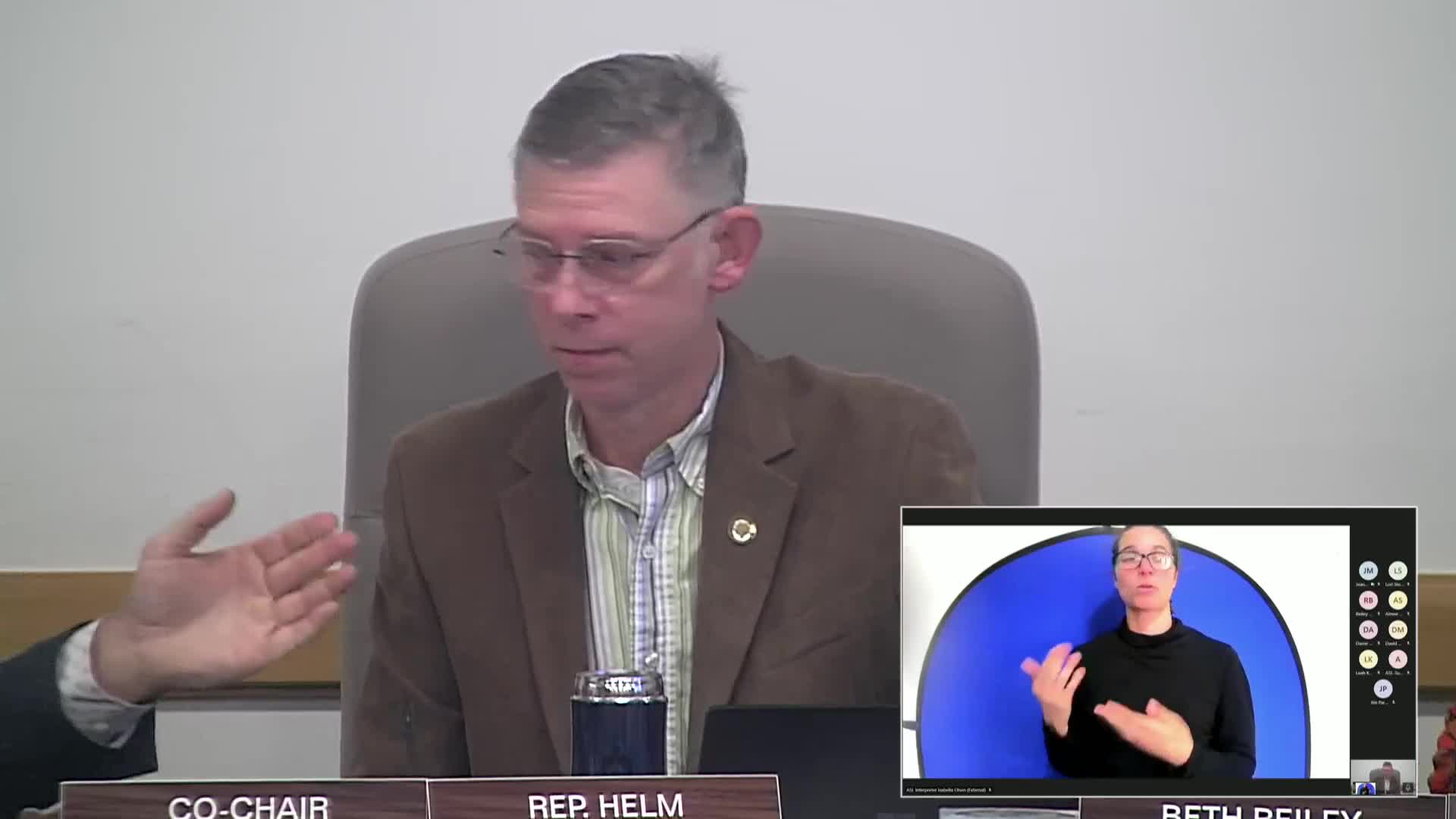Heated testimony for and against HB 2965, bill proposing ban on marine net pens in Oregon
Get AI-powered insights, summaries, and transcripts
Subscribe
Summary
Representative Mark Gamba presented House Bill 2965 (dash-5), which would ban the use of net pens for fish farming in Oregon's ocean and estuarine waters; supporters cited risks from escapes, disease and pollution while opponents urged existing regulatory controls and science-based solutions.
Co-Chair Owens opened a public hearing on House Bill 2965. Representative Mark Gamba, the bill sponsor, described the dash-5 amendment: the legislation would prohibit use of net pens for fish farming in ocean and estuarine waters in Oregon, while preserving the ability for the aquaculture industry to pursue other, non-net-pen approaches.
Proponents told the committee that net pens are open systems that allow waste, pharmaceuticals, pathogens and escapes to pass to the wild environment. Amy Van Saan (senior attorney, Center for Food Safety) said the bill would protect native fisheries, coastal economies and the broader aquatic ecosystem, and cited repeated instances of escapes and disease outbreaks in other jurisdictions. Alex Cerousi (Mercy for Animals) and other conservation groups urged passage and said the dash-5 amendment reflects stakeholder negotiations and will not affect state-run hatcheries.
Opponents including Maria Smithson (Salish Fish strategist), John Moll (50-year aquaculture professional), Gil Sylvia (Emeritus Professor and Port of Newport commissioner), Randy Bentz (Oregon Aquaculture Association president) and Laurie Steele (West Coast Seafood Processors Association) argued the bill is unnecessary or misplaced. They said Oregon already has a complex regulatory framework across state and federal agencies, that geography and currents reduce risk in Oregon estuaries, and that sustainable, well-regulated aquaculture can provide local seafood, economic opportunity and help reduce imports. Several opponents said they had not been contacted about the bill and sought a more data-driven approach.
Speakers on both sides referenced escape events, disease risks, feed and waste management, and the precautionary principle. Local practitioner Peter Donovan had recommended earlier in the water-data hearing that datasets be organized by watershed to support local planning; that comment was noted by committee members as an example of local engagement priorities.
Committee members asked jurisdictional questions (state territorial sea vs. federal waters) and clarified that federal waters (beyond three nautical miles) are not currently open to net-pen aquaculture under existing federal law. The hearing record included multiple contested technical claims; sponsors and supporters urged a work session and vote to advance the dash-5 amendment version of HB 2965. The committee accepted the public testimony and closed the hearing; no committee vote was recorded during this session.
